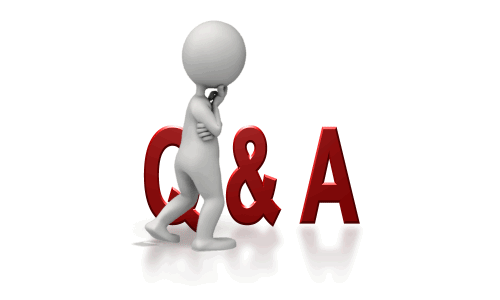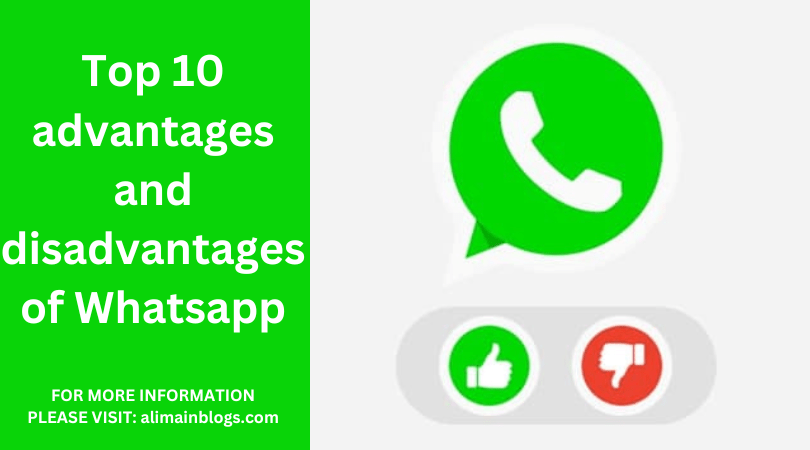WhatsApp, a widely embraced messaging application with global popularity, mirrors the typical trajectory of technological innovations by offering both advantages and disadvantages. Let’s delve into the nuances of the top 10 pros and cons associated with WhatsApp.
Advantages:

1. Instant Messaging:
WhatsApp facilitates prompt communication, allowing users to send text messages, images, videos, and documents in real-time.
2. Multimedia Sharing:
Users can express themselves effectively through the sharing of various media, such as photos, videos, and voice messages.
3. Free Messaging:
Leveraging internet connectivity, WhatsApp enables users to send text and media messages without incurring SMS charges.
4. Voice and Video Calls:
Providing an alternative to traditional phone calls, WhatsApp supports free voice and video calls over the internet.
5. Group Chats:
Users can effortlessly engage with multiple individuals simultaneously by creating group chats for personal or professional discussions.
6. Location Sharing:
Enhancing safety and convenience, WhatsApp allows users to share their real-time location with friends and family.
7. End-to-End Encryption:
Privacy and security are paramount through WhatsApp’s implementation of end-to-end encryption, ensuring only the intended recipient can access messages.
8. Status Updates:
Users can share textual content, photos, and videos as status updates, providing a means to broadcast moments to contacts.
9. Cross-Platform Compatibility:
WhatsApp’s availability on various platforms, including Android, iOS, and desktop, facilitates seamless connectivity across diverse devices.
10. Business Features:
Tailored for business interactions, WhatsApp offers features like WhatsApp Business, enabling businesses to engage with customers, share updates, and provide support.
Disadvantages:

1. Privacy Concerns:
Despite end-to-end encryption, persistent concerns exist regarding data privacy and the sharing of user information with WhatsApp’s parent company, Facebook.
2. Dependency on Internet:
In areas with poor or no internet connectivity, WhatsApp becomes inaccessible due to its reliance on an internet connection.
3. Storage Space:
Media files shared on WhatsApp can consume significant storage space on users’ devices, particularly if engaged in multiple groups.
4. Fake News and Misinformation:
WhatsApp has been a channel for the rapid dissemination of fake news and misinformation, facilitated by the ease of message forwarding.
5. Security Vulnerabilities:
Vulnerabilities inherent in any software pose a risk, necessitating regular updates to safeguard against potential threats.
6. No Message Editing:
WhatsApp lacks a message editing feature, preventing users from modifying or retracting sent messages.
7. Limited File Size for Sharing:
The imposed limit on file size for sharing documents and media can be restrictive when dealing with large files.
8. Overuse and Addiction:
The constant notifications and addictive nature of instant messaging on WhatsApp can lead to overuse, impacting productivity and personal relationships.
9. Lack of Anonymity:
Tied to a phone number, WhatsApp makes it challenging for users to maintain anonymity, a concern for some individuals.
10. Compatibility Issues:
Older devices or those with outdated operating systems may encounter compatibility issues, restricting access to certain features or the app itself.
It’s essential to acknowledge that the perceived advantages and disadvantages of WhatsApp can vary based on individual preferences, use cases, and regional considerations.

Advantages
Q: What advantages does WhatsApp offer for communication?
A: WhatsApp facilitates real-time messaging, voice calls, and video calls, fostering instant global communication. Embraced for its user-friendly interface, it provides a convenient means to stay connected with friends, family, and colleagues.
Q: How does WhatsApp streamline the sharing of multimedia content?
A: Supporting the exchange of photos, videos, documents, and voice messages, WhatsApp simplifies the sharing of diverse media. This feature enhances communication by providing a more immersive and interactive experience.
Q: In what ways does WhatsApp prioritize privacy and security?
A: Utilizing end-to-end encryption, WhatsApp ensures the confidentiality of messages and calls, visible only to the intended recipients. This commitment to privacy is a significant advantage for users concerned about the security of their communications.
Q: How does WhatsApp improve group communication?
A: Enabling the creation and participation in group chats, WhatsApp simplifies coordination with multiple individuals simultaneously. This feature is valuable for both personal and professional group interactions.
Q: What role does WhatsApp play in international communication?
A: WhatsApp facilitates free international messaging and calls over the internet, reducing the need for costly international plans. It serves as a cost-effective solution for users to maintain connections with friends and family across borders.
Disadvantages:
Q: What privacy concerns are associated with WhatsApp?
A: WhatsApp has faced criticism for its data-sharing practices with its parent company, Facebook, raising user concerns about the collection and utilization of personal information, potentially leading to privacy issues.
Q: How does WhatsApp address the challenge of misinformation and fake news?
A: Due to its end-to-end encryption, WhatsApp becomes a platform for the spread of misinformation, posing challenges for content monitoring. This has resulted in the dissemination of fake news, which can have tangible consequences.
Q: Are there limitations to WhatsApp’s file-sharing capabilities?
A: While supporting various media types, WhatsApp imposes file size limitations on sharing. Users may encounter challenges when attempting to send large files, necessitating the use of alternative methods for heavy data sharing.
Q: What challenges does WhatsApp face in business communication?
A: In the context of business communication, WhatsApp may lack certain features present in dedicated business communication tools, potentially limiting its suitability for professional use in certain cases.
Q: How does WhatsApp impact digital well-being?
A: The constant connectivity facilitated by WhatsApp can contribute to digital addiction, impacting mental health. The expectation of immediate responses and the influx of messages can be overwhelming for some users, affecting their overall well-being.
==================
FOR MORE INFORMATION PLEASE VISIT: alimainblogs.com
